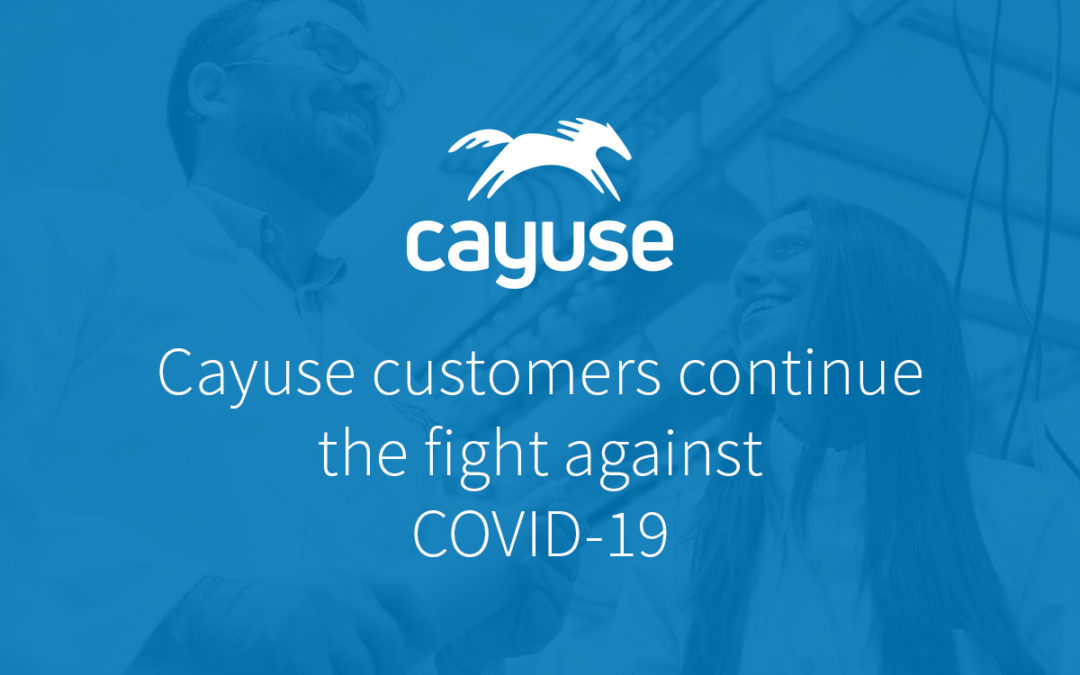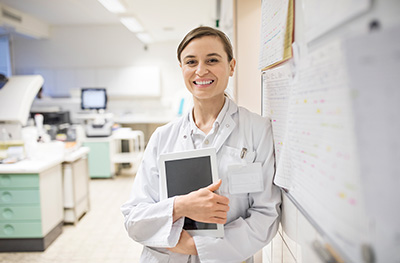As COVID-19 continues to affect communities around the world, we are learning more about the virus, thanks to the hard work and expertise of the global research community.
To celebrate and honor COVID-19 researchers, we’re sharing a few recent stories about the extraordinary work of Cayuse customers.
Oregon State University plans to track spread of COVID-19
Researchers at OSU have announced the first survey in the U.S. to track active COVID-19 infections across an entire community. In partnership with the local health department, OSU will introduce TRACE COVID-19, or Team-based Rapid Assessment of Community-level Coronavirus Epidemics, which plans to test about 3,840 local residents through representative random sampling.
University of Pittsburgh developing nasal spray that could prevent COVID-19
University of Pittsburgh researchers are developing a nasal spray for individuals at high risk of contracting COVID-19, which could serve as a preventive measure against the disease. In partnership with researchers from the University of Louisville, researchers plan to create a molecule called Q-griffithsin, combining an antiviral protein found in red algae and a plant in the tobacco family. The algae has been shown to bind to surfaces of the coronavirus, making it unable to infect healthy cells.
Wistar Institute and Penn Medicine begin coronavirus vaccine testing on humans
The Wistar Institute has begun human testing of its coronavirus vaccine at Penn Medicine, becoming the second coronavirus vaccine to enter a phase one clinical study in the U.S. The vaccine, based on synthetic DNA technology, is an expansion of the team’s vaccine design for Middle East Respiratory Syndrome, which resulted in nearly 2,500 cases and over 850 deaths in 2012.
St. Louis University tests possible breakthrough treatment for COVID-19
Researchers at St. Louis University are seeing promise in a trial of the COVID-19 drug remdesivir. St. Louis University’s Center for Vaccine Development is one of multiple sites in the trial around the country in which doctors tried remdesivir on some of their sickest coronavirus patients. Preliminary data shows remdesivir cut the recovery time for patients in the hospital from 15 to 11 days.
Texas A&M University begins human testing of tuberculosis vaccine to fight COVID-19
Researchers at Texas A&M University are asking hundreds of frontline medical workers to participate in a late-stage clinical trial of a widely used tuberculosis vaccine that could help boost the immune system to fight the effects of COVID-19. Texas A&M researchers are hoping to repurpose the vaccine for use against COVID-19 since it is widely available and has already been proven safe for other uses.
Wayne State University researchers examine industry characteristics to guide reopenings
Researchers at Wayne State University completed an analysis that studied ways to safely guide the reopening of communities and industries. The goal is to lower COVID-19 infection levels and maximize economic benefits until COVID-19 testing becomes readily available and immunity testing becomes efficient and reliable. The research team believes that immunity testing of workers in targeted low-proximity industries with low capacity to work remotely could eventually be an efficient and practical resource.
Emory University develops new blood test to better understand COVID-19 immunity
Researchers at Emory University have developed a new antibody blood test to help doctors better understand the coronavirus. The test is currently available to Emory patients, employees, and healthcare workers, and will soon roll out to the broader community. Emory is also part of the nation’s first clinical trial for a COVID-19 vaccine, as well as testing drugs that could slow or halt the impact of the virus in the lungs.
We have always been grateful to work with research professionals, but even more so during such a pivotal time for this community. If your institution is working on COVID-19 research, we’d love to hear about it. Let us know what you’re working on!


